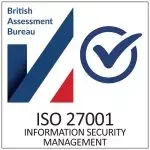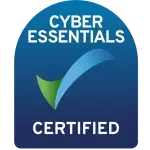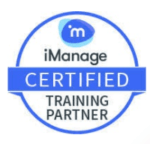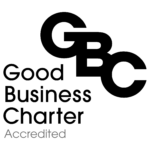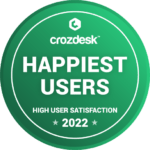
This week we talk about defining your skills assessment strategy to ensure a high caliber of employees in your recruitment process. Investing in employee development has become more quantitative and metrics-driven than ever before, which puts skills assessment methodology at the forefront of workforce investment.
Having a workforce with cutting-edge skills is critical for driving innovation and maintaining a competitive edge. However, ensuring your employees possess the right capabilities requires a strategic approach to skills assessment.
This comprehensive guide delves into the importance of developing an effective skills assessment strategy and provides actionable steps to help you get started. You’ll learn:
- Why skills assessments are crucial for optimizing your learning and development (L&D) initiatives
- The different types of assessments and when to use them
- Practical examples of formative and summative assessment methods
- How to overcome assessment anxiety and foster an organizational learning culture
- A step-by-step framework for building a robust skills assessment program tailored to your needs
- The key elements of a successful skills assessment strategy
- How strategic assessments can unlock your workforce’s full potential
By implementing a well-designed skills assessment approach, you can accurately measure employees’ proficiency levels, identify strengths and gaps, personalize training, facilitate professional growth, and ultimately build a future-ready workforce equipped to drive your organization’s success.
Whether you’re just starting to explore skills assessments or want to refine your existing strategy, this guide offers valuable insights to maximize the impact of your L&D investment.
IN THIS ARTICLE...
Investing in Employee L&D
Statistics prove that companies across the globe invest heavily in employee learning and development. According to Training Magazine, US training expenditures reached an all-time high of $101.6 billion in 2021-2022.
Why we need Skills Assessment Strategies
For companies to maintain their competitiveness, training is a must. Organizations that spend more time and money on employee training do see an increase in profits.
HR and Training Managers can fine-tune their training in a way that considers and builds upon the strengths of their employees. The training focused on employee strengths takes into account the ways individual employees learn best.
Why do we need to Assess Learners?
Understanding employees’ challenge areas is also key. Training that is focused on employee strengths can create an environment that allows employees to understand themselves and how they do their tasks, allowing for a stronger and more confident workforce.
Skills assessments can provide the learner with the essential skills, knowledge, and professional requirements needed to grow in their roles. Some employers include the learners in designing their skills assessment strategy and growth plans. This can lead to good bonding and instill a sense of inclusion.
Skills Assessment Strategies for Success in Adult Learning
In this detailed webinar, our CEO, Claire shares her experience and knowledge of skills assessment strategy, best practices in adult learning, and online training.
Different Types of Employee Assessment
Each type of assessment has its own value because learning happens when we are required to recall what we know. In addition, both have the benefit of encouraging employees to develop their real-world skills.
Formative Assessments
These happen in the flow of learning. This is more commonly known as a Flipped Assessment and it’s similar to the flipped classroom concept. Formative assessment occurs at regular intervals of a learner’s progress, it’s embedded within the lesson and the learning plan, in order to identify skills gaps. The importance of flipped assessment is immediate feedback. It allows you and the learner to measure individual strengths and weaknesses, and focus on their unique learning needs.
Formative Assessment Examples
- Comprehension quizzes during an online course to check understanding of key concepts
- Practice coding exercises with live feedback on their code
- Role-playing activities to apply new sales skills
- Peer review activities where learners evaluate each other’s work
Summative Assessments
This is the more traditional type of assessment. Users are given this type of skills assessment at the end of learning. To test what is recalled from the training event, and to evaluate learning according to a benchmark that is set by the trainer.
Summative Assessments Examples
- A final exam or certification test at the end of a technical training program
- A capstone project that demonstrates mastery of skills learned
- A simulation assessment where learners must perform job-relevant tasks
- A portfolio review to evaluate cumulative skills and achievements
Don’t Forget the Other A Word: Tackling Anxiety
When considering skills assessment strategies, the other “A Word” that often accompanies them is anxiety. Over the years, we’ve encountered two common types of learners who fear assessments:
Those who think “I’m a good employee, why should I take a test? If I fail, will I get fired? This one test shouldn’t determine my years of experience.”
Those who feel “I’ll look stupid if I don’t pass. I don’t need a skills test or more training. I don’t have time for this.”
To implement an effective assessment program, it’s crucial to proactively address these anxieties through proper change management practices:
- Foster a Growth Mindset – Emphasize that assessments are tools for growth, not evaluations of self-worth. Promote a culture where learning from failures is encouraged.
- Lead with Transparency – Communicate the purpose, process, and implications of assessments. Dispel misconceptions and address concerns transparently.
- Involve Employees Early – Get staff input when designing assessments. Their involvement will increase buy-in and perception of fairness.
- Provide Practice Opportunities – Offer sample assessments so employees know what to expect. This builds confidence and reduces surprises.
- Leverage Social Learning – Create discussion forums where employees can share tips, cheer each other on, and learn collaboratively.
- Celebrate Successes – Highlight individuals who embrace upskilling through assessments. Recognize their growth as motivational examples.
- Offer Personalized Support – Based on results, provide customized coaching, training plans, and resources to address individual gaps.
By promoting an organizational culture that values continuous learning and implementing proper change management, you can transform assessment anxiety into enthusiasm for professional development.
What’s the value of a Skills Assessment Strategy?
When planning training and development for your organization, it’s expected there will be a gain; in terms of improved skills and productivity, greater retention rates, and an improved brand overall. Also, aligning business objectives and leveraging insights to increase firm profitability while closing knowledge gaps and increasing employee satisfaction.
Post-training quizzes, one-on-one discussions, employee surveys, participant case studies, and certification exams are other ways to measure assessment effectiveness.
What makes a Good Skills Assessment Strategy?
We conducted a very comprehensive case study with one of our clients, which we think offers an excellent example of the use of skills assessment strategies.
Our team built the skills assessments using Intellek Create whilst the client’s team curated the training content to support the learning requirements of the workflow. This resulted in a significant increase in engagement of 264%, tied to the use of the eLearning content!
This study reinforced the absolute necessity and value of assessment strategies. Reach out to us today and discuss implementing this in your L&D efforts.
Developing an Effective Skills Assessment Strategy
Creating an effective skills assessment strategy requires a systematic approach that aligns with your organizational goals and learning initiatives. By following a structured process, you can design assessments that accurately evaluate employees’ proficiency levels and identify areas for improvement. A well-crafted strategy ensures assessments are valid, reliable, and integrated seamlessly into the overall training and development framework.
Breaking it down into actionable steps simplifies the process of building a comprehensive skills assessment program tailored to your company’s unique needs. From defining critical competencies to implementing insightful analytics, each step plays a crucial role in maximizing the impact of your assessment efforts.
Let’s dive into the step-by-step guidance to develop a robust skills assessment strategy that drives continuous workforce upskilling and competitive advantage:
- Define the skills and competencies critical for your workforce’s roles and your organizational goals.
- Determine the appropriate assessment methods (tests, projects, simulations etc.) based on the skills being evaluated.
- Set clear evaluation criteria and rubrics to accurately measure skill proficiency levels.
- Build in analytical tools to capture and report on assessment data over time.
- Create a process for using assessment insights to personalize learning paths.
- Establish a predictable assessment cadence aligned to training cycles.
- Communicate the purpose and process transparently to encourage participation.
- Continuously improve assessments based on results and feedback.
- Link assessment performance to professional development plans.
- Use assessments as an opportunity to identify high-potential employees.
Skills Assessment Strategy Key Takeaways
- An effective skills assessment strategy is essential for measuring workforce capabilities, identifying skill gaps, personalizing training, and fostering employee growth.
- Formative assessments (quizzes, practice exercises, etc.) provide ongoing feedback during learning, while summative assessments (exams, projects, etc.) evaluate overall mastery after training.
- Implementing strategic skill assessments requires following a systematic process – from defining critical competencies to leveraging analytics.
- Address assessment anxiety through change management practices like fostering a growth mindset, leading with transparency, and providing personalized support.
- Blend formative and summative methods to create a comprehensive assessment program that optimizes your L&D investment.
- Regular, data-driven skill assessments enable the development of future-ready talent pipelines with cutting-edge capabilities.
- With the right assessment approach, learning efforts can be precisely targeted for maximum workforce upskilling and organizational impact.
Unlock Workforce Potential with Strategic Skills Assessments
An effective skills assessment strategy is vital for measuring workforce capabilities, identifying strengths and gaps, personalizing training, facilitating employee growth, and building a high-performing organization.
By implementing a well-designed assessment program using a blend of formative and summative methods, companies can optimize their learning investment. Regular skills assessments provide valuable data-driven insights to continuously develop talent pipelines of future-ready employees equipped with cutting-edge skills to drive business success.
With the right assessment approach, learning and development efforts can be surgically targeted for maximum impact.
Intellek (formerly TutorPro) is a founding member of the learning technology industry. With a presence in the USA, UK, Canada, and the EU – for over 30 years we have pioneered the development of cutting-edge eLearning software and online training solutions, with a large and diverse portfolio of international clientele.
Disclaimer: We use all the tools available including generative AI to create relevant and engaging content.
